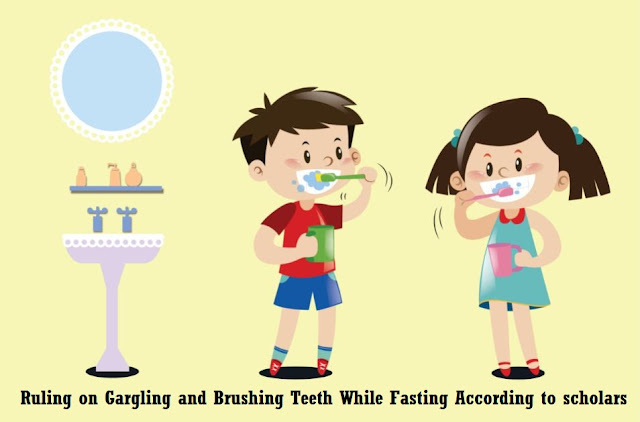In our daily life there are many activities that can accidentally cause something to enter our body. For example, swimming or brushing teeth. Swimming may be avoided, while a toothbrush is a self-cleaning necessity for a healthier life.
When fasting, we are often confused, whether it is permissible to rinse the mouth during ablution or not. This question arises from people who are not familiar with the law on the permissibility of gargling and brushing teeth while fasting.
Some people argue, gargling while fasting is not allowed. Because water can be inhaled into the throat. However, there are also those who allow gargling as long as it is not inhaled into the throat.
Therefore, to answer the question of whether gargling can invalidate the fast in this month of Ramadan, here we will explain the answers compiled from the scholars.
1. Imam Shafi’i
explained, excessive or serious in gargling is to put water in the mouth then run it in the mouth and then spit it out or spit it out.
In harmony, in the sharh of the book al-Majmu by Sheikh Zakariya al-Ansari explains, for people who fast it is not recommended to be serious about gargling, for fear of breaking the fast.
2. MahbubMa’afiRamdlan
The original law of gargling while fasting is permissible (permissible). However, there are some notes to note.
Gargling while fasting can occur for two reasons, namely ablution and brushing teeth.
At the time of ablution, gargling while fasting is recommended, because the pillars of ablution are sunnah. However, it is not recommended to overdo it and just be reasonable.
The meaning of excessive is not too much and too tight. For fear of breaking the fast.
3. Ustad Khalid Basalamah
through a short lecture said that brushing teeth while fasting is okay and does not break the fast.
“It’s okay (toothbrush) to use toothpaste or not, the important thing is not to swallow it. Because what cancels is to swallow it,” said Khalid Basalamah in his speech quoted from the youtube channel.
Ustad Khalid Basalamah explained, what he said refers to the actions of the Prophet Muhammad ShalallahuAlaihiWasallam who always sings before praying, whether he is fasting or not.
“The Prophet shalallahu ‘AlaihiWasallam always used to sing while fasting, so (toothbrush) there was no problem,” he said again.
Ruling on Bersiwak or Brushing Teeth while Fasting
It’s the same as inhaling water into your nose and then inhaling it with your breath. This is not recommended. So what about the law of gargling while fasting because of siwak or brushing your teeth?
In the syarh of the book Nihayatuz Zain by Sheikh Nawawi Al-Bantani explains, there are thirteen things that are makruh in fasting. One of them is siwak (brushing teeth) after noon.
This means that the law of gargling while fasting due to siwak or brushing teeth is still allowed. However, the law can be makruh if it is done during the day after noon. Also, make sure not to swallow any water as it will break the fast.
The scholars agreed to punish the act of brushing teeth and gargling while fasting as makruh acts.
That is, the act can be done, but it will be much more if avoided. Because there is a concern for objects such as water to enter the throat. If that happens, it will invalidate the fast.
So, it is necessary to set a time to brush your teeth and rinse your mouth during the fasting month. This quotes the opinion of Sheikh Muhammad Nawawi Al Bantani in the book Nihayatuz Zain.
“Things that are makruh in fasting are thirteen. One of them is performing siwak after noon.” wrote Al Bantani.
Thus, there is another suggestion that brushing teeth is done after sahur before the dawn call to prayer is heard. This method is certainly safer because it is done before fasting.
Ruling on Cleaning the Mouth While Fasting According to Hadith
In a hadith, it is stated that cleaning the teeth or mouth before praying is highly recommended, especially siwak.
From Abu Hurairah radhiyallahu ‘anhu, the Prophet sallallaahu ‘alaihiwasallam said,
لَوْلاَ أَنْ أَشُقَّ عَلَى أُمَّتِى لأَمَرْتُهُمْ بِالسِّوَاكِ عِنْدَ كُلِّ وُضُوءٍ
“Had it not been a burden on my ummah, I would have ordered them to perform siwak every time they performed ablution.” (This hadith was published by Bukhari in his Sahih book in mu’allaq (without a chain). Also issued by Ibn Khuzaimah 1: 73 with a more complete chain. Shaykh Al Albani said that this hadith is authentic).

